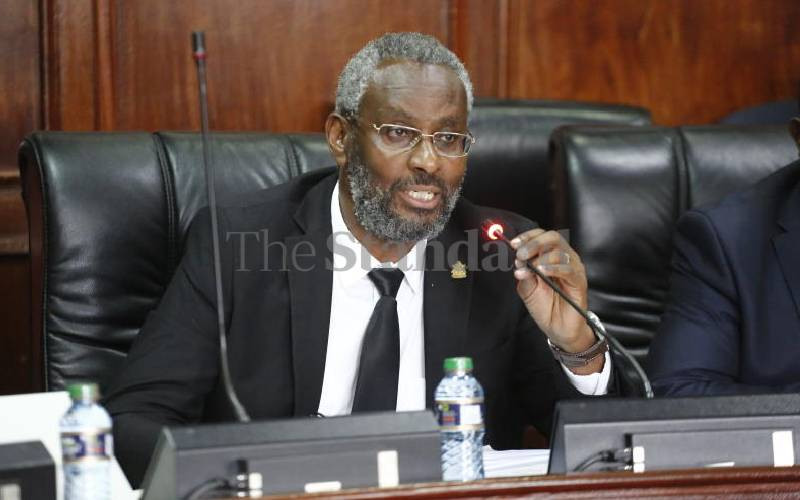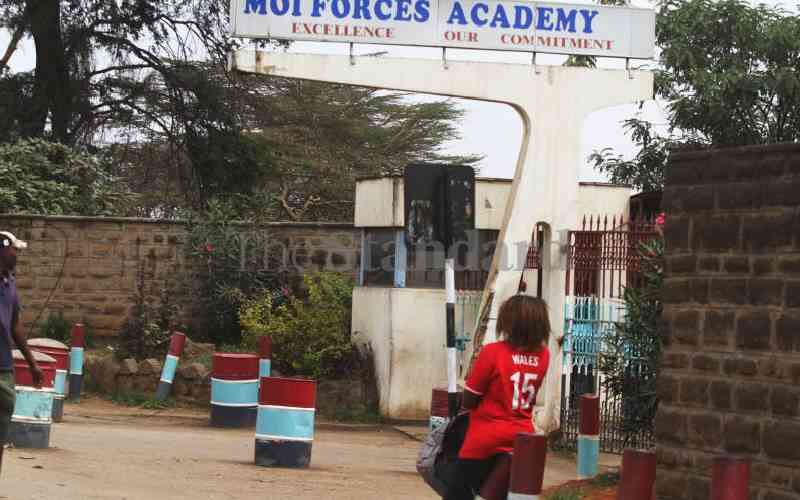By JOE KIARIE
Matatu crews have admitted to bribing police officers in a bid to circumvent the punitive fines imposed by the Traffic (Amendment) Act 2012.
Members of the Matatu Drivers and Conductors Association (MDCA) say they also disregard the rules to protest alleged harassment by the police.
“The amended Traffic Act has not helped in reducing road carnage,” says Samson Wainaina, the association’s chairman. “All that changed is the bribes pattern, with police officers now negotiating for higher bribes.”
He says crews are arrested for offences such as not wearing uniform, which attract a fine of up to Sh10,000 under the new law, and easily buy their freedom with an average of Sh2,000. He says this is a significant increase from the period before the introduction of the new law last December, when such an offence would attract a bribe of as little as Sh200.
But Wainaina says matatu owners and crew have to dig deeper when arrested for major offences, among them driving unroadworthy vehicles.
“When a matatu is impounded and declared unroadworthy, and the number plate is plucked out, both the driver and the owner are hit with fines of between Sh40,000 and Sh80,000 each,” he explains.
“Most give police officers bribes of at least Sh20,000 to avoid prosecution and secure the release of the vehicle.”
Officers accused
He accuses the officers in charge of police stations of colluding with motor vehicle inspectors to collect the bribes.
To avoid detection, he adds, most of the deals are cut at odd hours, mostly early in the morning or after 5pm. In Nairobi, he cites Central, Parklands, Makongeni, Kasarani and Kabete police stations as some of the most notorious for these types of transactions.
The MDCA chairman says those who refuse to bribe and pay the higher fines in court face a further hurdle as they have to part with a cash bail of Sh10,000 or a bribe of lesser amount for the vehicle to be released for repairs.
“It takes two to tango, but businesswise we have no option but to tempt the officers with bribes,” he says. “It doesn’t make any sense to have your vehicle withheld for weeks while you also keep off work to attend court sessions,” says Wainanina.
He laments that the police target matatus indiscriminately during safety crackdowns, a move he says has resulted in rebellion and disregard for the law.
Stay informed. Subscribe to our newsletter
“During operations, the police impound any matatu, whether it has met all the set conditions or not,” he claims. “Most matatu crews no longer care since the officers must arrest when they decide so. Some crew refuse to wear uniform so that they can easily disappear when ambushed.”
Last month, the MCDA, the Matatu Owners and Matatu Welfare associations threatened to paralsyse public transport countrywide protesting harassment by the police, intimidation and corruption.
The threat came at the height of a police crackdown on vehicles. The groups citing high-handedness by Traffic Commandant Samwel Kimaru, who they said should be replaced. In an interview with The Standard On Saturday, Kimaru does not deny claims of corruption among traffic law enforcers. He, nonetheless, says his department is doing fairly well and nabbing wayward officers remains difficult.
“There might be some compromise that occurs before offenders are formally charged,” he says. “We have really tried to fight corruption from within, fired and even demoted some officers. This is ongoing.”
To prove this, Kimaru shows us bundles of folded currency notes he claims were recovered from corrupt officers he says have already been disciplined.
“Prosecution (of police officers for accepting bribes) is major challenge since most witnesses shy away or turn hostile,” he adds. “Officers who take bribes should count themselves unlucky as we will catch up with them at some point.”
He accuses motorists of hypocrisy in lamenting corruption while fuelling it. “They always tempt our officers with cash every time they are arrested to avoid prosecution,” he says.
Kimaru says matatu stakeholders use corruption and harassment claims to attract public sympathy every time there is a crackdown.
“They want to maintain the status quo on the roads and are unhappy every time there is a (traffic) commandant they cannot manipulate,” he says.
Kimaru says traffic crackdowns are impartial and target all unroadworthy vehicles, and that the recent daily crackdowns, which are still ongoing albeit moderately, were influenced by the heavy rains recorded last April and May.
 The Standard Group Plc is a
multi-media organization with investments in media platforms spanning newspaper
print operations, television, radio broadcasting, digital and online services. The
Standard Group is recognized as a leading multi-media house in Kenya with a key
influence in matters of national and international interest.
The Standard Group Plc is a
multi-media organization with investments in media platforms spanning newspaper
print operations, television, radio broadcasting, digital and online services. The
Standard Group is recognized as a leading multi-media house in Kenya with a key
influence in matters of national and international interest.
 The Standard Group Plc is a
multi-media organization with investments in media platforms spanning newspaper
print operations, television, radio broadcasting, digital and online services. The
Standard Group is recognized as a leading multi-media house in Kenya with a key
influence in matters of national and international interest.
The Standard Group Plc is a
multi-media organization with investments in media platforms spanning newspaper
print operations, television, radio broadcasting, digital and online services. The
Standard Group is recognized as a leading multi-media house in Kenya with a key
influence in matters of national and international interest.








